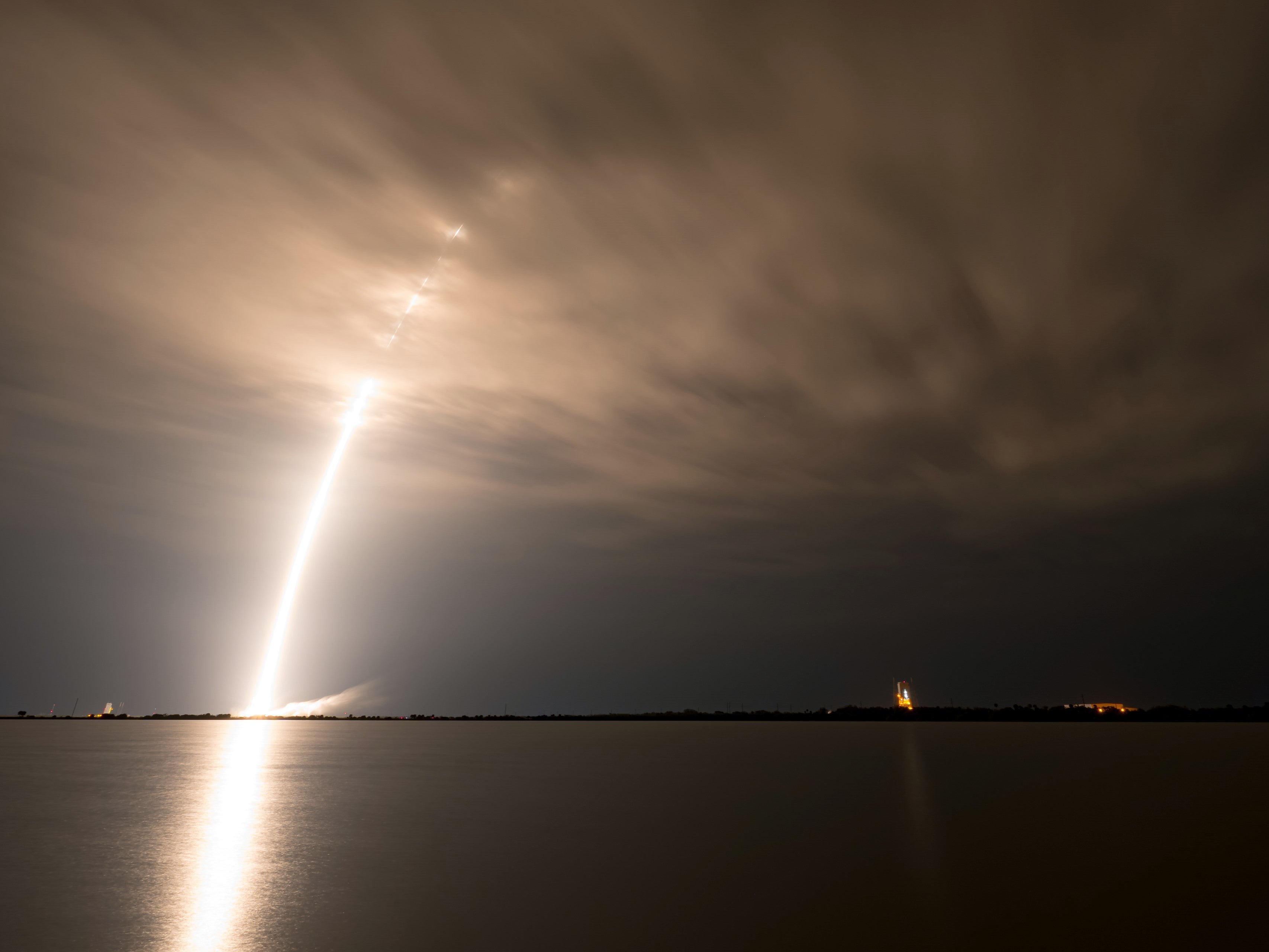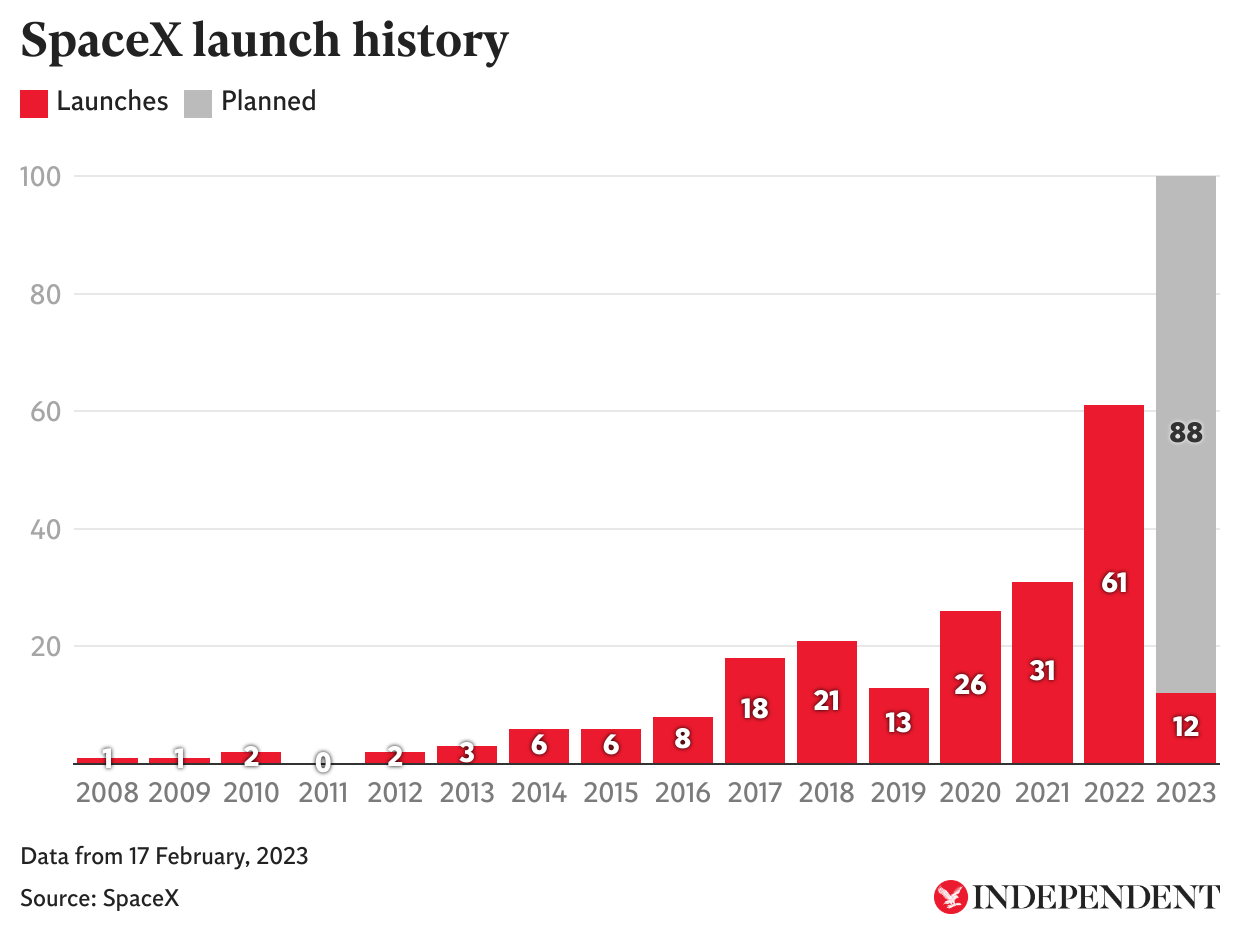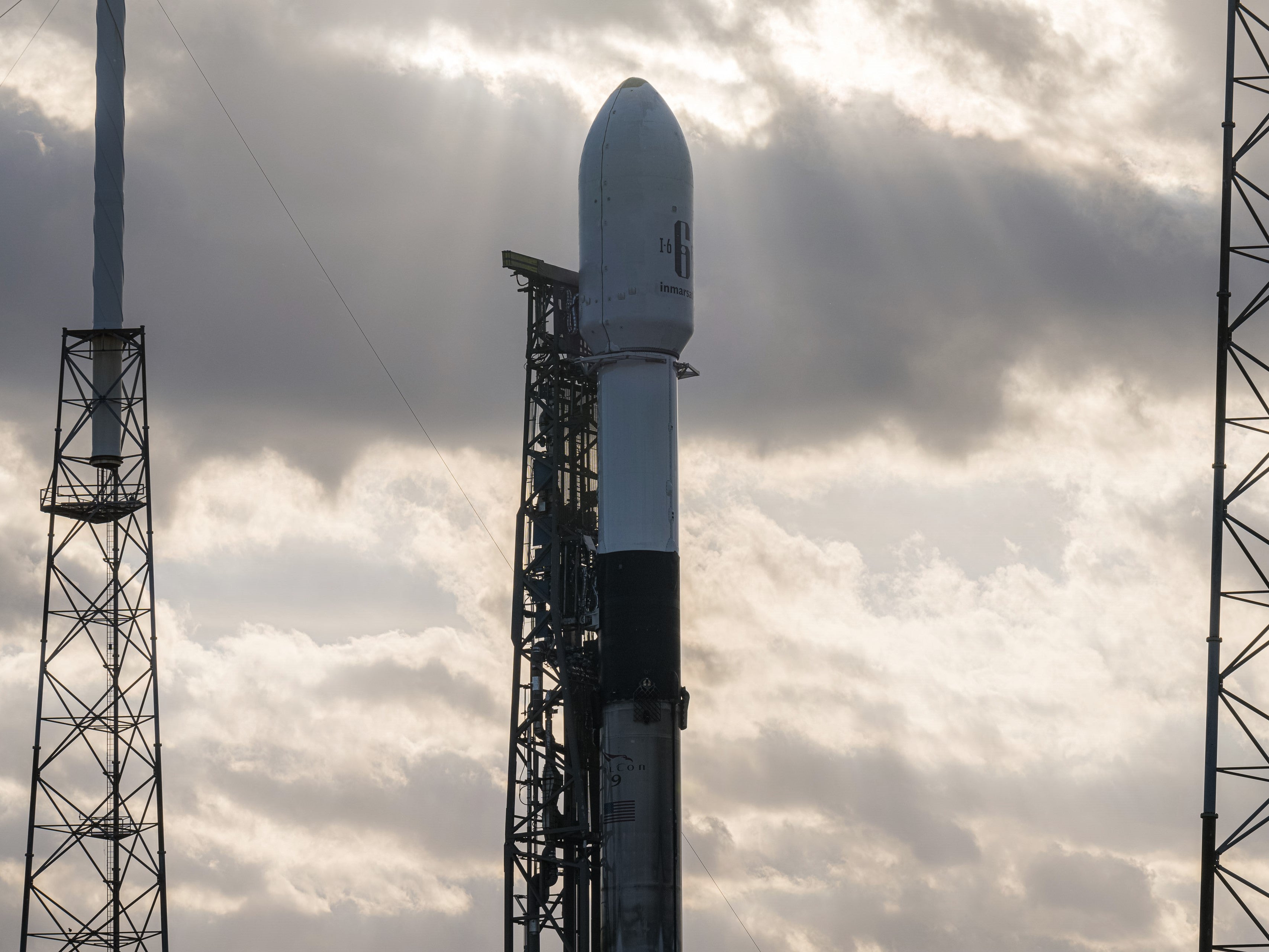SpaceX launches two missions just hours apart
Starlink and Inmarsat missions both used reuseable Falcon 9 rockets

Your support helps us to tell the story
From reproductive rights to climate change to Big Tech, The Independent is on the ground when the story is developing. Whether it's investigating the financials of Elon Musk's pro-Trump PAC or producing our latest documentary, 'The A Word', which shines a light on the American women fighting for reproductive rights, we know how important it is to parse out the facts from the messaging.
At such a critical moment in US history, we need reporters on the ground. Your donation allows us to keep sending journalists to speak to both sides of the story.
The Independent is trusted by Americans across the entire political spectrum. And unlike many other quality news outlets, we choose not to lock Americans out of our reporting and analysis with paywalls. We believe quality journalism should be available to everyone, paid for by those who can afford it.
Your support makes all the difference.SpaceX launched two Falcon 9 rockets within nine hours of each other on Friday, marking the second shortest interval ever between missions.
The first launch, which took off from Vandenberg Space Force Base in California at 11.12am local time (7.12pm GMT), delivered 51 Starlink satellites to low-Earth orbit.
The second mission launched from Cape Canaveral, Florida, at 10.59pm ET (03.59am GMT, Saturday), blasting an Inmarsat communications satellite into geostationary orbit.
The successful launches were just short of the company’s record between Falcon 9 missions of 7 hours and 9 minutes, which it achieved on 5 October, 2022. Both of Friday’s launches made use of refurbished Falcon 9 rocket boosters, which returned to Earth a few minutes after taking off and will be reused for future missions.
The ability to reuse rockets has made SpaceX launches more frequent and more affordable, with a high cadence launch rate becoming increasingly routine for SpaceX. Last year, the private space firm launched more than one mission a week, and is seeking to complete 100 missions for the first ever time in 2023.

The majority of these launches will likely be for its Starlink space internet network, which already has close to 4,000 micro-satellites in low-Earth orbit beaming high-speed internet back to Earth.
The competitive prices of SpaceX’s launch business – cutting costs from hundreds of millions of dollars to tens of millions – mean some of Starlink’s competitors are also using the company to deliver their hardware into space.
One competitor is British satellite firm Inmarsat, whose I-6 F2 satellite will enter geostationary orbit following its launch on Friday from Cape Canaveral.
The satellite, which the company describes as the most sophisticated commercial communications satellite ever built, is the twin to the I-6 F1 that launched in 2021. Each the size of a double-decker bus, they will together provide connectivity to the maritime and aviation industries – both of which Starlink aims to serve.

Inmarsat launched the first of the I-6 satellites with Mitsubishi Heavy Industries in Japan but plans to use SpaceX again for its next launch, despite being a competitor in the satellite business.
“It’s the new world. You compete in one part of the business, you cooperate in another,” Inmarsat CEO Rajeev Suri told The Independent.
“If they’re good at launching, then we’ll use them. They have reusable rockets, they do a good job of launching, and the costs have dropped significantly in recent years.”

Join our commenting forum
Join thought-provoking conversations, follow other Independent readers and see their replies
Comments